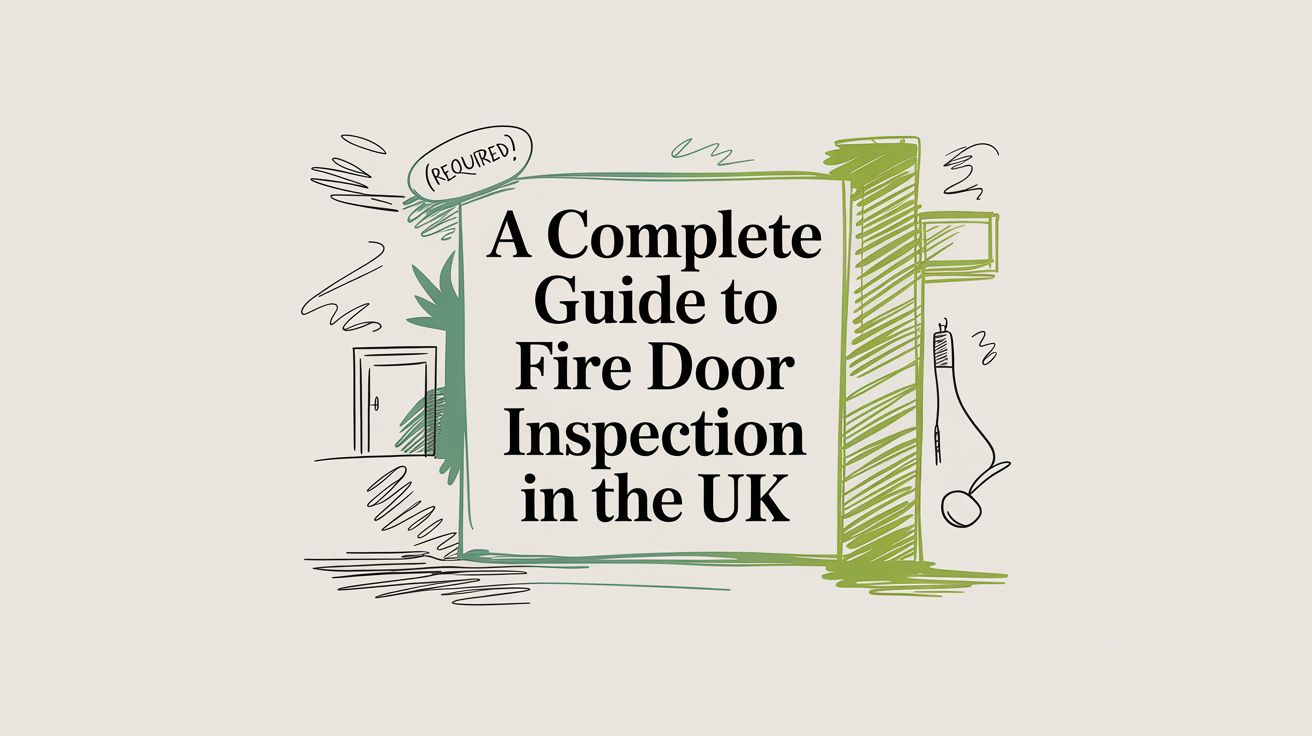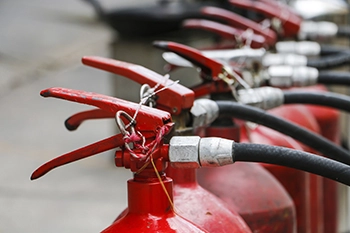
A Complete Guide to Fire Door Inspection in the UK
A fire door inspection is a systematic, detailed check to verify that a fire doorset is functioning correctly and meets all legal UK standards. It...
A fire risk assessment is more than just a recommendation, it’s a legal requirement in the UK under the Fire Safety Order 2005. If you’re responsible for any non-domestic building or shared property, you have a duty to identify fire hazards, assess risks, and take action to protect the people who live, work, or visit.
We provide detailed fire risk assessments for HMOs, residential blocks, and commercial spaces. Every assessment is carried out by a qualified professional and results in a clear, easy-to-understand report with actionable steps. Whether you’re a landlord or managing agent, our job is to make compliance simple.
If you’re unsure which fire risk assessment applies to your property, contact us now.



A fire risk assessment is more than just a recommendation, it’s a legal requirement in the UK under the Fire Safety Order 2005. If you’re responsible for any non-domestic building or shared property, you have a duty to identify fire hazards, assess risks, and take action to protect the people who live, work, or visit.
We provide detailed fire risk assessments for HMOs, residential blocks, and commercial spaces. Every assessment is carried out by a qualified professional and results in a clear, easy-to-understand report with actionable steps. Whether you’re a landlord or managing agent, our job is to make compliance simple.
If you’re unsure which fire risk assessment applies to your property, contact us now.
A fire risk assessment is a structured review of a building to identify anything that could cause a fire or put people at risk if a fire does break out. It looks at ignition sources, detection systems, escape routes, and occupancy. By law, it’s a duty for HMO landlords, business owners, and those responsible for communal areas.
The assessment includes a site visit, documentation checks, and a written report outlining any risks or required improvements. We issue an official document that helps landlords stay compliant and support licensing applications.
See our services page if you want to know how this fits into a wider safety strategy.
The law applies to anyone responsible for a building, known as the “responsible person”, who must carry out regular fire risk assessments. This applies to:
If you’re unsure whether the law applies to your property, the general rule is this: if people live, work, or gather in a building that isn’t a private home, you’re likely responsible. Not having an assessment in place can result in enforcement notices, fines, or prosecution.
We keep the process simple. Here’s what you can expect when you book your assessment:
Step 1: Site Visit
Once you’ve booked with our team, our assessor will attend the property to conduct an on-site inspection, taking into account the building’s layout, occupancy, and risks.
Step 2: Risk Identification & Evaluation
Our expert will review fire alarms, fire doors, emergency lighting, signage, escape routes, and any other safety-critical systems. We also assess potential ignition sources and hazards.
Step 3: Report & Action Plan
After the visit, we provide a full written report that outlines any concerns and details a clear plan for compliance. Prioritised actions help you create an effective strategy to meet your legal duties under the Fire Safety Order.
If you’d like to understand more about how we approach each stage, the full breakdown is also covered on our services page.
A thorough fire risk assessment not only protects lives but also supports your wider property management responsibilities. If you’re preparing for an HMO licence renewal, a commercial tenancy, or a visit from local authorities, having a current, professional assessment on file demonstrates that you are taking fire safety seriously.
It can also help with insurance compliance. Many insurers now request up-to-date fire safety documentation before issuing or renewing a policy. A clear, professionally written assessment can reduce complications, streamline paperwork, and even affect your premiums positively.
By acting on the recommendations in your report, you also create a safer environment for tenants, staff, and visitors, helping prevent disruption and damage that could result from fire-related incidents.
A fire risk assessment isn’t a one-off task. UK regulations recommend reviewing your assessment at least annually, or whenever there is a significant change to the property. This could include renovations, a change in use, or a shift in the type or number of occupants.
If your last review was more than 12 months ago, or if your property has undergone any updates, it may be time to reassess. Regular reviews help you stay ahead of risks and demonstrate ongoing compliance to licensing bodies and insurers.
We also provide follow-up assessments and support for ongoing fire safety planning. If you’re unsure when your last review was, feel free to contact our team, and we’ll help you determine your next step.
If you’re applying for an HMO licence or undergoing a visit from your local authority, a valid fire risk assessment is one of the first things they’ll ask to see. Councils want to know that fire safety systems are in place, escape routes are clear, and the property is being actively managed. Our assessments help you meet these criteria and prepare for a smooth inspection process.
In many cases, our clients use our fire risk reports to support planning applications, landlord accreditation schemes, or housing association requirements. Having a professionally documented assessment ready for review shows that you’re serious about compliance and safety.

A fire door inspection is a systematic, detailed check to verify that a fire doorset is functioning correctly and meets all legal UK standards. It...
We work with landlords, agents, housing associations, and business owners across the UK. Our assessors are experienced, fully qualified, and understand the real-world challenges of maintaining safe buildings.
We don’t use jargon or overcomplicate things. Just reliable advice, fast reporting, and straightforward service. Most reports are delivered within days of the site visit, and we’re available to answer questions or clarify any part of your action plan afterwards.
If you’re ready to get started, you can request a quote or speak to a member of the team.
Subtitle